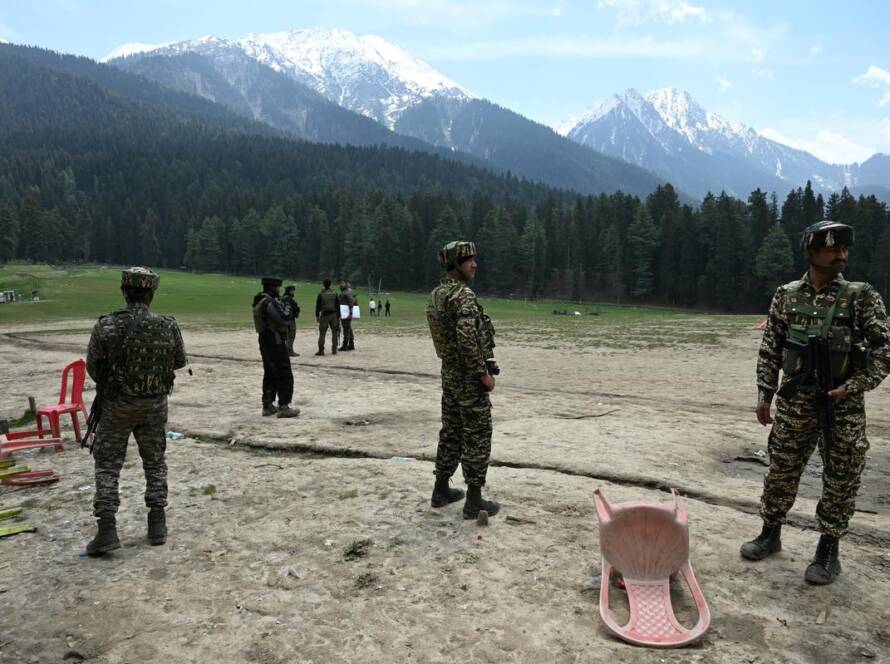By Ramindu Perera
In December 2024, the International Court of Justice (ICJ) concluded the oral hearings of a historic case on international obligations of states to combat the climate crisis.
The case originated with the request submitted by the United Nations General Assembly (UNGA) to provide an advisory opinion clarifying obligations international law imposes on countries concerning climate change, and legal consequences arising from their breach.
The ICJ, which is the judicial organ of the United Nations (UN), exercises the jurisdiction to offer advisory opinions on the request of principle UN organs. While these opinions are not legally binding, as in contentious cases, they are influential as they clarify legal questions and therefore carry a significant moral authority.
The case drew significant attention as it turned out to be the largest ever case argued before the ICJ, with 91 written submissions being submitted, and 96 states and 11 international organizations presenting oral arguments.
North-South divide
The case stemmed from the efforts of a group of small island developing states — most affected by rising sea levels and facing extinction — that sought to leverage international law to address the climate crisis. The Pacific Island state Vanuatu took the lead in forming an alliance to initiate a case before ICJ. This led to the adoption of a resolution by the UNGA in 2023, with 132 countries, mostly countries of the Global South sponsoring the resolution.
The climate crisis involves an important division between developed and developing countries. Currently, China and United States are the countries that share the largest portion of global carbon emission.
But since the population of the United States is significantly lower than China, the per-capita emission is higher in the United States. Furthermore, considering cumulative emissions from 1970s, the United States ranks first, with countries in the European Union come second, followed by China [1].
These data show that while Global North countries are responsible for the largest share of carbon emissions historically, emerging countries in the Global South — mainly China in the recent past — have significantly contributed to the sum total. Yet, from a historical point of view it appears that developed nations in the Global North — now enjoying a high standard of living are mostly responsible for the crisis created by carbon emission.
On the other hand, the vast majority of the countries in the Global South are victims of this development since their contribution to global carbon emissions are negligible. Nevertheless, they suffer dire environmental and social consequences created by climate change.
For example, it is estimated that 140 million people in Sub- Saharan Africa, South Asia and Latin America would become displaced within their national borders by 2050 if the crisis is not sufficiently addressed.
Since Global South countries are less developed, they lack the financial resources to adapt to the changes produced by the climate crisis and mitigate harm. Furthermore, the fact that they are highly indebted makes the situation worse.
UNFCC framework: Not enough?
It is in this context that climate financing has become a pressing demand advanced by developing nations — mainly, small island developing countries that are hardly hit by climate change. These countries are asking the Global North to commit more financial resources to combat climate crisis, and to assist developing nations that face climate-related vulnerabilities.
The ICJ hearing comes after the frustration created by the failure of the 29th United Nations Climate Conference (COP 29) that was held in the city of Baku, Azerbaijan in November 2024 to agree on a sustainable workplan on climate financing. In the Baku summit, developed nations agreed that they will provide 300 billion USD per year in climate financing by 2035.
The arrangement was denounced by developing nations as grossly inadequate, and the alliance of small island developing states walked away from the conference stating their objection.
The present ICJ case demonstrates the frustration among developing nations not only concerning diplomatic negotiations but also on the limits of the current international framework on combatting climate change. Following the 1992 United Nations Framework Convention on Climate Change (UNFCCC), many attempts have been made to develop an international legal framework on this subject.
The Paris Agreement (2015) is the most recent milestone that required states to commit to keep global temperature well below 2C⁰ above of the pre-industrial era temperature level. Furthermore, states were required to make Nationally Determined Contributions (NDC) demonstrating targets of each country to reduce their emissions.
The experience of the last ten years shows that the Paris Agreement has proven to be inadequate to tackle the climate crisis. The main problem lies in the voluntary nature of commitments — there are no legal obligations to meet the emission reduction goals. In the absence, there has been little improvement in mitigating the crisis.
Debated issues
Submissions before ICJ indicate that there are substantive differences among states regarding the scope and extent of state obligations. While high emitting countries argued for lesser obligations, low emitting countries sought to push for a more robust definition.
For instance, one contentious issue has been the applicable law on climate change. United States, China and Saudi Arabia argued that the law applicable are the three climate related treaties — the UNFCCC, Kyoto protocol and the Paris Agreement. Since the three treaties do not attribute mandatory reduction targets, high emitting countries seem to have preferred to define legal obligations within their framework.
On the other hand, most Global South nations argued that other sources of international law — for instance, customary international law and human rights treaties are also applicable in determining climate related obligations. Such an interpretation would allow the courts to define state obligations in a broader manner.
Another moot point was whether climate change can be attributed to the conduct of certain states. Most Global North states contended the causal link between state conduct and the climate crisis.
For instance, the joint submission of Nordic countries pointed out the lack of scientific agreement on how responsibility should be attributed to states. Australia was of the opinion that the current climate regime does not allow affected states a right to claim reparation from high emitting countries. On the contrary, the need for financial and technical assistance, including debt relief was among the main themes stressed by most developing countries.
Law from below
How the ICJ rules on these matters is yet to be seen. Though the ruling is only an advisory opinion, that can have far reaching consequences. For instance, the ruling can influence many other climate related lawsuits at domestic and regional levels and can serve as a basis for developing countries to claim compensation from developed countries for the harms created by the climate crisis. It can further become a reference point in diplomatic engagements, asking rich countries to take responsibility for the harm they have caused.
Modern international law is something that was formed and shaped during the times of colonization. The imperial bias of international law — even after the collapse of formal empires and decolonization — has been an issue raised by critical scholars coming from the Global South.
While these biases still remain, international law also offers as an arena for contestation, a platform that has allowed developing countries — mostly former colonies — to challenge certain conducts of developed states. The climate action case before the ICJ is an interesting scenario where the discourse of international law has been invoked by the powerless to pursue justice against the powerful.
[1] https://thenextrecession.wordpress.com/2025/01/07/assa-2025-part-two-the-radical-climate-labour-and-imperialism/
Ramindu Perera is an academic attached to the Department of Legal Studies, the Open University of Sri Lanka. He can be reached at ramindu@ezln@gmail.com.
Factum is an Asia-Pacific-focused think tank on International Relations, Tech Cooperation, and Strategic Communications accessible via www.factum.lk.
The views expressed here are the author’s own and do not necessarily reflect the organization’s


